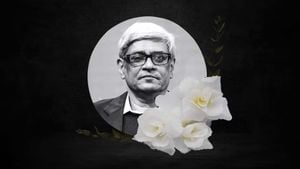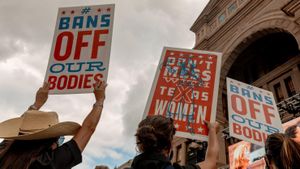David DePape, the man convicted for violently attacking Paul Pelosi, former Speaker Nancy Pelosi's husband, was sentenced on October 31, 2024, to life imprisonment without the possibility of parole. This ruling follows DePape’s prior conviction on federal charges, which had already sentenced him to 30 years.
The attack, which occurred on October 28, 2022, sent shockwaves through the nation, highlighting concerns over political violence and the safety of public figures. During the incident, DePape allegedly broke through the Pelosi family’s front door, shouting, “Where is Nancy? Where is Nancy?” before he confronted the 82-year-old Paul Pelosi.
According to police reports, the encounter became horrific when, after wrestling for control of a hammer, DePape struck Paul Pelosi on the head. The brutal attack resulted not only in severe physical injuries for Pelosi, who suffered two skull fractures but also served as the catalyst for nationwide discussions about security for political figures and their families.
Judge Harry Dorfman, presiding over the case, made it clear during the sentencing hearing the severity of DePape’s actions warranted the harshest possible punishment. The judge’s unequivocal statement, “It’s my intention, Mr. DePape, you will never get out of prison,” underscored the gravity of DePape's crimes.
While the defense argued for leniency, describing DePape as having been drawn down the path of violence due to conspiracy theories, the prosecution painted a different picture. They emphasized DePape’s dangerous obsession, noting he harbored delusions about public figures and had been influenced by extreme ideologies.
Defense attorney Adam Lipson argued during the trial for DePape's mental health issues, stating DePape had once been “a peaceful, law-abiding person” before he became engulfed by harmful beliefs, including those related to far-right conspiracy theories. Lipson claimed his client had descended down “a rabbit hole of conspiracies” around events such as the 2020 presidential election, which he mistakenly believed was marred by fraud and lies.
DePape himself did not shy away from expressing his beliefs during the proceedings. He made outlandish statements, claiming affinity toward far-fetched theories, declaring, “I’m a psychic,” and expressing his thoughts on 9/11 being orchestrated by the government. Such declarations only heightened the unsettling atmosphere within the courtroom.
His previous convictions added weight to the prosecution's narrative, which included convictions for aggravated kidnapping and false imprisonment. The content of the police body cameras revealed the tense confrontation and how quickly matters escalated during the early hours of the morning.
DePape’s intention to hold Nancy Pelosi hostage became evident as details unfolded from the attack. Authorities later revealed he had planned to coerce her for answers on various conspiracy theories surrounding her and the government, indicating his rationale was driven by perceived injustices.
Paul Pelosi’s quick thinking and discreet call to 911 at the time of the attack likely saved his life. When officers arrived, they found both men grappling with the hammer, only to witness DePape overpowering Paul and committing the violent act.
The legal repercussions for DePape continued stacking up, as the sentencing followed his federal trial, where he was already facing substantial time due to the gravity of his actions. The sentence of life imprisonment for state charges negated any hopes for parole, eliminating any chance for him to re-enter society.
Reflecting on the broader societal impact, San Francisco District Attorney Brooke Jenkins emphasized the need for accountability and denounced DePape as a threat to the very fabric of democracy. She stated, “Mr. DePape is now being held accountable and will spend the rest of his life behind bars.”
The attack on Paul Pelosi had ramifications beyond the direct violence; it fueled discourse about the rising tide of extremism and the targeting of individuals based solely on their political affiliations. Concerns about threats against public figures were amplified, highlighting the urgent discussions about safeguarding democracy and ensuring the safety of those involved in politics.
Although Paul Pelosi survived the gruesome attack, the physical and emotional toll of the incident lingered. His recovery was tightly followed by media and those within political circles, as it represented not just his fight for healing but also brought to light the fears surrounding political violence.
The sentencing marks another chapter closed on this tumultuous event but continues to echo loudly within the community and among those paying close attention to the political climate of the nation. The conversation about everyday citizen safety, especially for those living public lives, remains at the forefront of societal discussions.
David DePape will now face the consequences of his actions within the confines of prison for life, his narrative serving as a somber reminder of the volatile intersection of political beliefs and violence.



